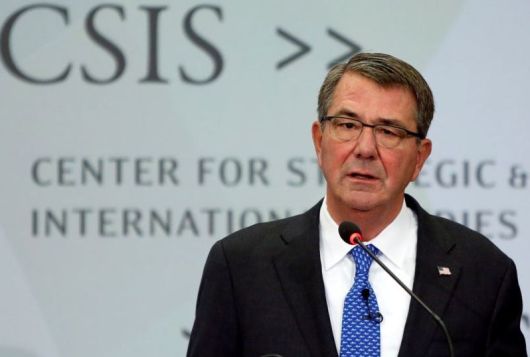The Operation to Retake Raqqa from ISIS Is Still Far off
A Raqqa operation to drive the Islamic State from its Syrian stronghold is very much on US Defense Secretary Ashton Carter’s mind. Last week, he said he expected it to overlap with the battle for the liberation of Mosul now going into its third week.
But an insurmountable complication has cropped up. The prospective senior partner, Turkey, has laid down tough conditions for taking part in the operation. This has stirred up objections among other would-be partners as well.
And so Carter told reporters Wednesday, Nov. 2: “We’ll continue to talk with Turkey about its role in the eventual seizure of Raqqa, but we’re proceeding now with the operation according to our plan.”
He was reacting to a statement made by Turkish Prime Minster Binali Yildirim on Oct. 28 that the Mosul operation must be completed first.
Furthermore, Yildirim stressed that the Syrian Kurdish PYD/YPG militia must be excluded from the Raqqa operation because “Turkey could not participate in the operation alongside the US if it is joined by a terror organization.”
To underscore this point, the Turkish prime minister said: "We can never be on the same side as a terror group that gives every kind of logistic support to the PKK (the Turkish Kurdish separatist group), a clear enemy of Turkey.”
After listening to Carter’s reference to Turkey, the US-backed Syrian Democratic Forces (SDF) alliance of Kurdish and Arab armed groups put in its two bits on Thursday, Nov. 3, with a statement: “The Syrian Democratic Forces are the only force that will take part in the operation to liberate Raqqa and we informed the [international US-led] coalition forces that we reject any Turkish role in the Raqqa liberation operation," SDF spokesman said.
DEBKA Weekly’s military sources note that, in these circumstances, although Barack Obama issued a presidential directive for the Raqqa operation to begin during the Mosul offensive, a US-led coalition assault on ISIS’ Syrian stronghold is still very far off – unless, of course, at least 15,000 American troops are sent over.
ISIS can feel safe in its Raqqa stronghold for the foreseeable future in the light of five insuperable obstacles:
1. Neither Turkey nor the Syrian Kurdish militia is capable of moving on Raqqa without US approval and air support. Carter had counted on US leverage for banging Turkish and Kurdish heads together to force them both to join the offensive, for the sake of saving northern Syria from Islamic State inroads.
He failed to weigh the force of Turkish resistance to any form of Kurdish self-government in Syria as being the prime motivation for its army’s advance into the North. The Kurds, for their part, will on no account accept Turkish rule over post-liberation Raqqa.
2. President Tayyip Erdogan is pursuing his own scheme for a Turkish incursion into PYD-ruled El Abyad – but not Raqqa or recourse to Washington’s blessing. (see map)
Our sources explain that Erdogan ordered his army chiefs to go forward with this scheme only if the PYD makes a grab for ISIS-occupied Al-Bab, or the US decides to go ahead with the Raqqa operation with the PYD. In either case, Ankara would hit back at Washington for picking the Kurdish militia for its important Raqqa offensive.
This Turkish scheme runs counter to Defense Secretary Carter’s plans for the twin battles against ISIS.
3. Erdogan has additional reprisals up his sleeve for possible US-Kurdish collaboration to take Raqqa, such as ordering his army to advance on Manjib to undermine the YPG’s success in capturing this north Syrian town from ISIS earlier this year.
4. The Kurdish militia carried out ethnic cleansing when it captured Syrian Tel Abyad. Its displaced Arab population would therefore welcome Turkey’s takeover of the town, which its army could manage without outside help.
5. The liberation of Raqqa from ISIS is not a high priority for Turkey.


